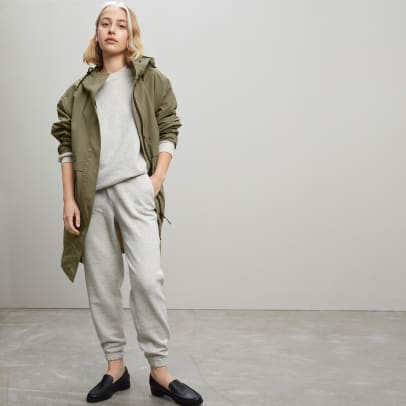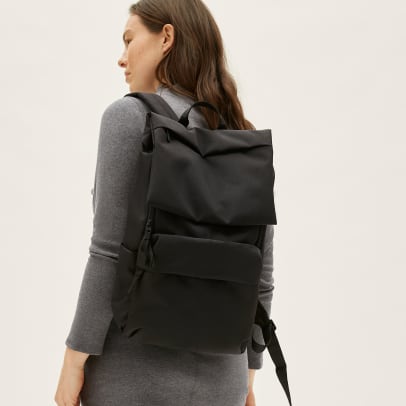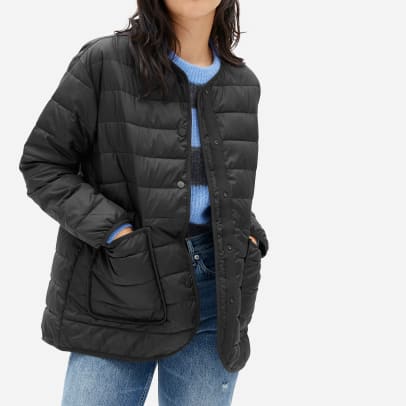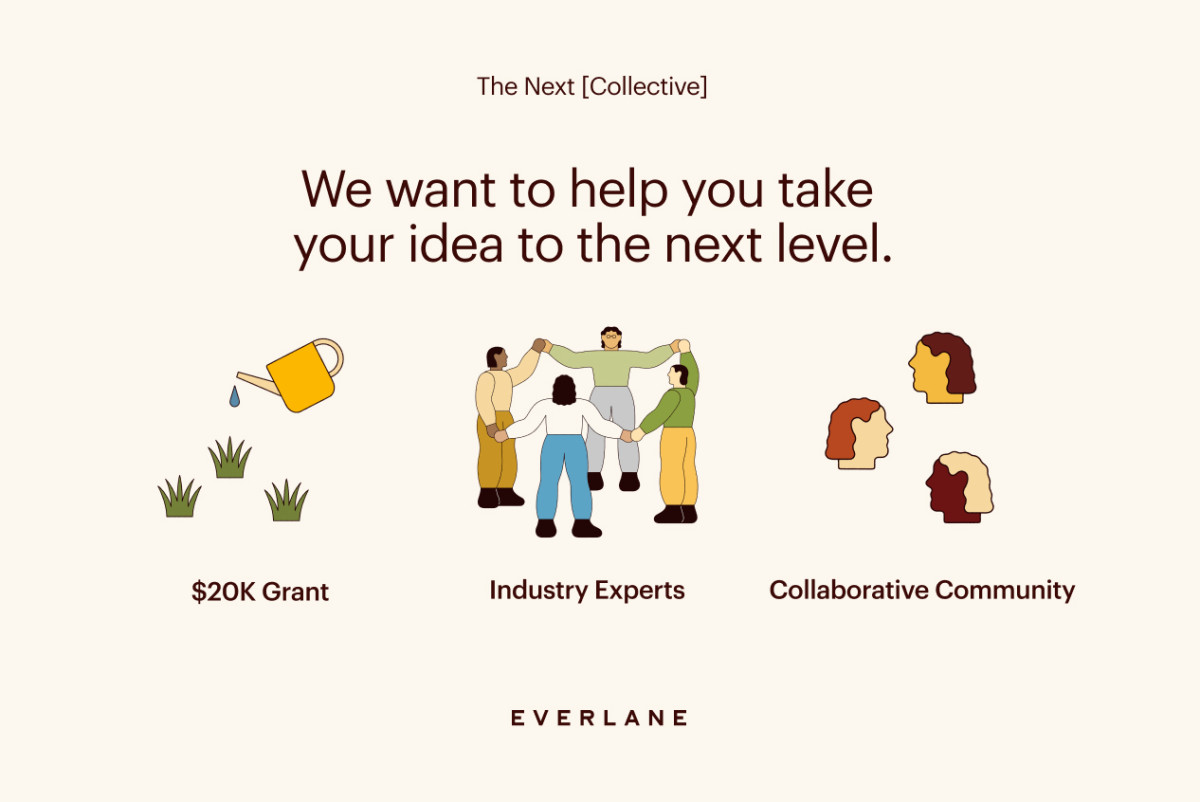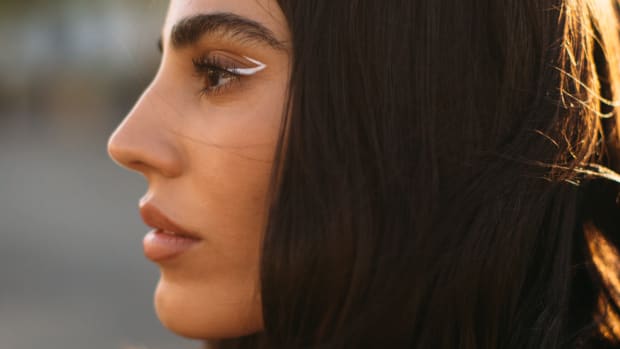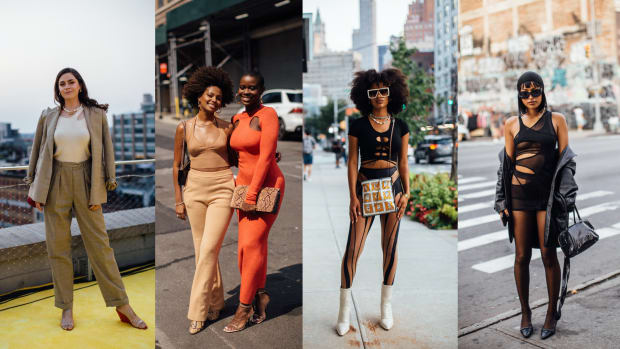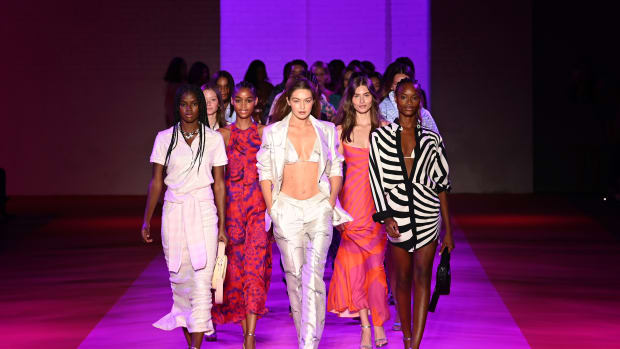
Photo: Courtesy of Everlane
In October of 2018, millennial-favorite DTC clothing brand Everlane announced a very ambitious sustainability goal: to completely eliminate virgin plastic from its supply chain, packaging, offices and stores by 2021. In case you've forgotten what year it is, as I often do, it's 2021 now. In fact, there are somehow only four months left of 2021, and Everlane has confessed it is not quite going to make its self-imposed deadline. However, it would be wrong to categorize what Everlane has done over the past three years as a failure.
What it's done is remove 90% of all virgin plastics from its supply chain. According to the brand's Director of Sustainability Katina Boutis, among its biggest accomplishments thus far are replacing polybag use with 100% recycled plastic versions or with FSC-certified paper alternatives (which are fully recyclable in municipal waste streams), and switching 45 core materials to recycled equivalents in its products, ranging from outerwear puffers to tote bags to footwear.
Everlane has also incorporated over 1 million pounds of post-industrial and post-consumer recycled material into its product since 2018 (made from recycled plastic water bottles, fishing nets and other items destined for landfill); and recycled and introduced over 9 million plastic PET bottles into its product. Many companies would probably consider that to be plenty, but when Everlane said 100%, it meant 100%.
"This was and remains to be a holistic goal, focused not just on polymers like polyester and nylon, but on all plastics used in our product and packaging, including trims and components and stretch content," says Boutis. "It's an ambitious goal, but one we firmly believe will better the planet, help to inspire creativity in solutions for ourselves and our supply chain partners, and will galvanize others in the industry."
In pursuing this goal, Everlane identified a few categories where plastic-free or recycled alternatives are exceptionally difficult to find and implement, and those represent the final 10%. These hurdles include trims, like zipper pulls and buttons, for which 100% recycled versions don't meet quality standards; footwear, where plastic plays a small but important role in structure and function; and stretch material, which typically relies on virgin polymers. Boutis calls the latter "the most challenging material to recycle in the systems we have available today."
These obstacles, of course, aren't unique to Everlane, they're industry-wide. So, in the midst of its ongoing journey, the retailer had the idea to create an opportunity for others to collaborate on solutions.
"Transitioning the last 10% of virgin plastic is an entirely different challenge, and we've learned we cannot accomplish it alone — the parts are often smaller, the challenges more nuanced, and moreover, the infrastructure and innovations still need to be tested and built," says Boutis. "A challenge as big as eliminating the use of virgin plastics in fashion requires collaboration and collective problem solving."
Recommended Articles
Inspired by that realization, Everlane is now looking for early-stage entrepreneurs to join the Next Collective, a fellowship program that will provide participants with $20,000 and access to industry leaders in sustainability, fashion, design, business and innovation. Its goal is to bring people together and support ideas for tackling fashion's environmental challenges, starting with its reliance on virgin plastic. These ideas don't even need to be directly applicable to Everlane's final 10%, which the retailer is still addressing internally and with its factory partners.
"We believe in the power of innovation through the means of collaborative entrepreneurship and problem solving," says Boutis. "That's why The Next Collective targets entrepreneurs who are in the early stages of business and whose ideas may be outside of established thinking and practice in the sustainability space."
If that sounds like you, Everlane is still eagerly accepting applications until Oct. 18, 2021. And if you want a leg up, Boutis shared some of the criteria by which they'll be reviewed:
- Innovation — Ideas with the potential to make a long-term impact on the fashion industry by reducing the use of virgin plastics — preferably with the potential to scale across different geographies, communities, or technologies.
- Community Impact — Ideas that take an equitable approach to drive positive social and environmental change.
- Fellowship — Applicants who are willing to collaborate and share their expertise to advance sustainability in the fashion industry.
The fellows will be selected by a panel of experts, who will each also host a virtual session with the fellows in 2022. They include Everlane leaders Michael Preysman (CEO) and Kimberly Smith (Chief Supply Chain Officer), as well as Sanjeev Bahl, founder and chief executive of B Corp jeans manufacturer Saitex; Theanne Schiros, an FIT professor and research scientist; Ngozi Okaro, executive director and founder of Custom Collaborative; Julie Gilhart, fashion consultant and chief development officer at Tomorrow London Ltd; and William J. Barber III, founder and president of the Rural Beacon Initiative, LLC.
Selected fellows will maintain ownership of their ideas, and the Next Collective is intended to help them take those ideas to the next level. The hope is simply that fostering collaboration between a group of emerging innovators and entrepreneurs will advance sustainability in the fashion industry and beyond.
Boutis says, "We believe that investing in changemakers is one of the best ways we can help to close the innovation gap, accomplish our own goals, and contribute to industry change."
Interested? Apply here.
Interested in shopping some of the items that incorporate Everlane's plastic-reducing innovations? Browse the gallery below.
